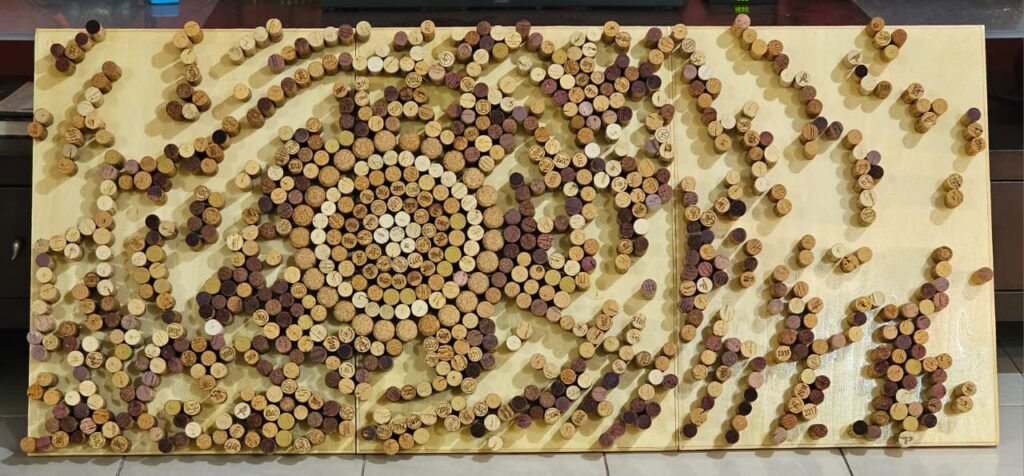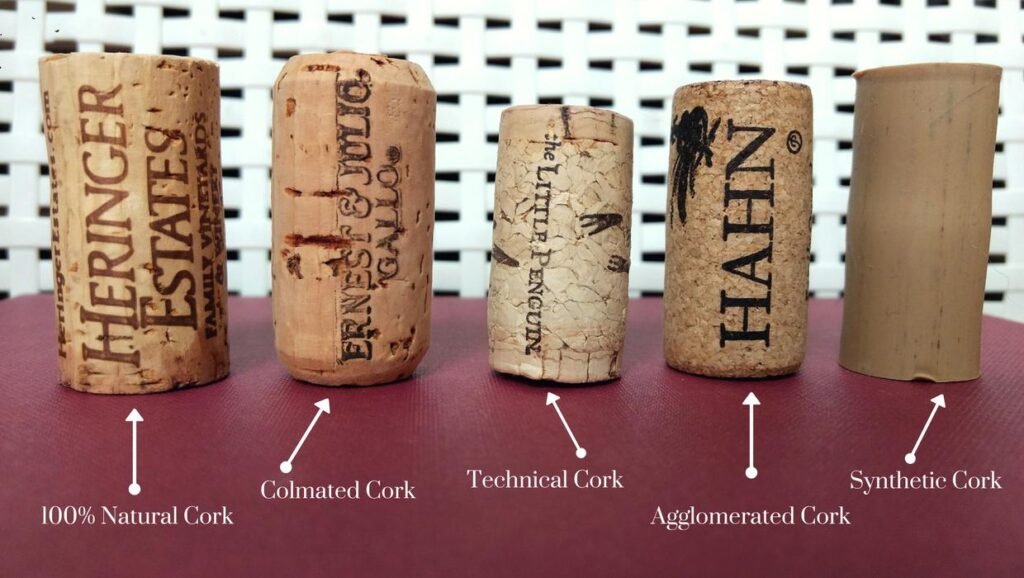CORK, the outer bark of an evergreen type of oak tree called the cork oak (species Quercus suber) that is native to the Mediterranean region. Cork consists of the irregularly shaped, thin-walled, wax-coated cells that make up the peeling bark of the birch and many other trees, but, in the restricted commercial sense of the word, only the bark of the cork oak merits the designation of cork. The cork oak grows abundantly in Portugal, Spain parts of southern France and Italy, and North Africa. The tree is usually about 18 m (60 feet) tall, with a broad, round-topped head and glossy green, holly-like leaves.

We will discover the different types of corks used in wine bottles and how they influence preservation and evolution over time.
1. Natural Corks – Natural corks are the most common and traditional type used to seal wine bottles. Derived from the bark of the cork oak tree (Quercus suber), these corks are the result of a sustainable and careful extraction process. Their elasticity and ability to expand upon contact with wine allow for a tight seal, preventing the entry of oxygen and facilitating the wine’s aging over the years.
2. Agglomerated Corks –also known as technical corks, are created from small pieces of natural cork bonded with food-grade adhesives. These corks are a more economical option compared to natural corks, offering greater uniformity in size and texture. While they may not have the same sealing capacity as natural corks, they are popular for young wines meant to be consumed soon and do not require extensive aging.
3. Twin Top or Horn Corks – are an innovative alternative in the world of wine closures. These corks combine the stability and effectiveness of a natural cork on the end that comes into contact with the wine, while the other end is made of synthetic or agglomerated materials, making insertion into the bottle easier. This combination provides a tight seal and is especially popular among premium wine producers.
4. Synthetic Stoppers have gained popularity in recent years due to their consistency and ability to prevent the presence of TCA (2,4,6-Trichloroanisole), a substance that can cause the “cork taint” defect. Manufactured from plastic or elastomeric materials, synthetic stoppers are an environmentally-friendly option, although some critics argue they may limit proper wine aging over the long term.

p.s. I vow to drink more wine so I can do something crafty with the Corks.





